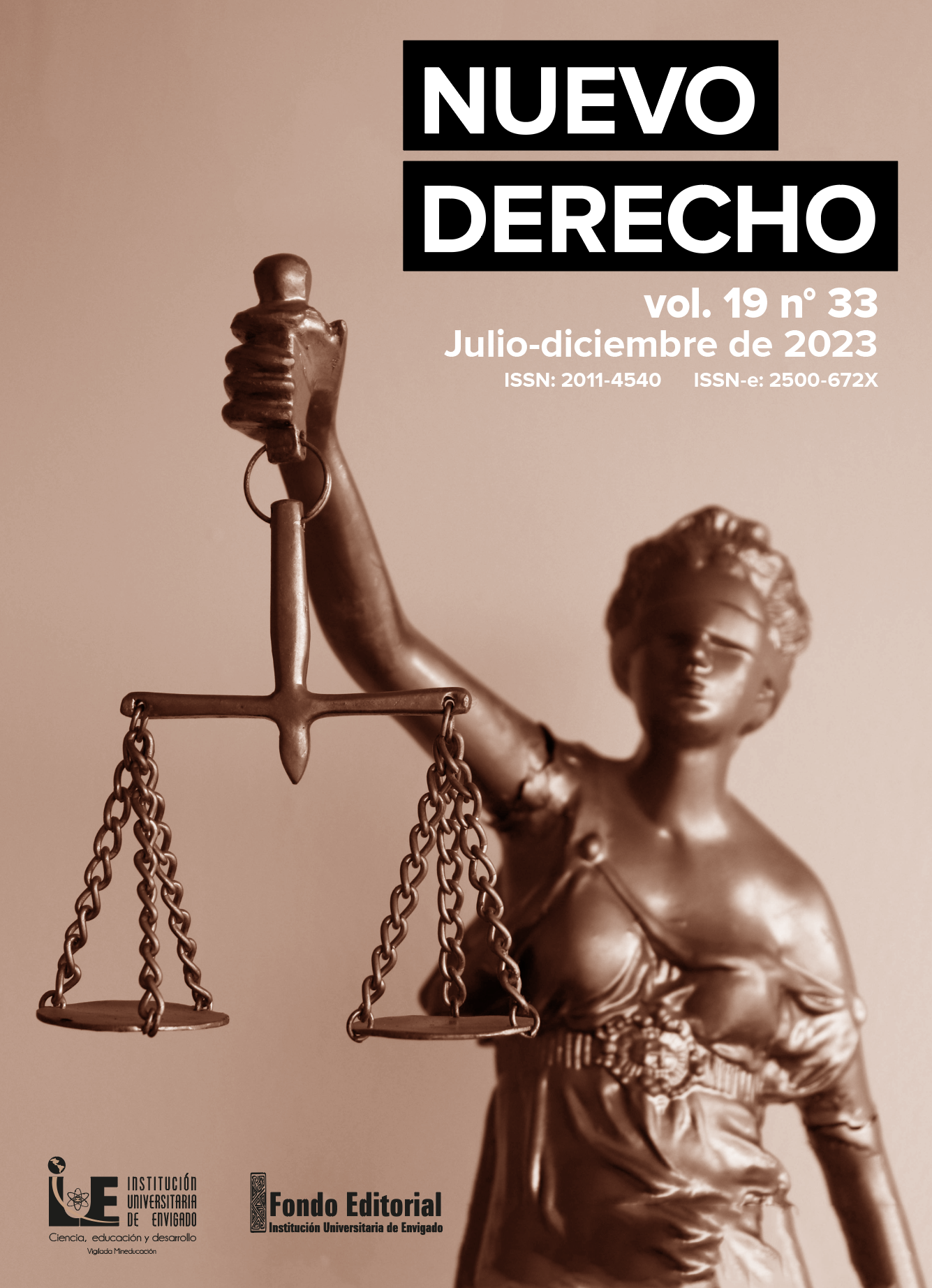Cosmopolitan democracy and polycentrism of power - Initial debates
DOI:
https://doi.org/10.25057/2500672X.1516Keywords:
Democracy, Polycentrism, Institutions, RepresentationAbstract
The world is currently experiencing a democratic deficit of representative institutions resulting from the context of globalization and the polycentrism of power. In this article, we will analyze the model of cosmopolitan democracy as conceived by David Held, Anthony McGrew and Daniele Archibugi. To do so, firstly, we will present the foundations of the cosmopolitan democratic model of the researched authors. Then, we will deal with
the concrete institutional proposals presented by them. Finally, we will discuss the main limitations and criticisms of the analyzed model. Based on these considerations, we face the research problem: what is the potential of the cosmopolitan democracy project to
supply the democratic deficit of the Brazilian representative institutions resulting from globalization and the polycentrism of power?
Author Biographies
Daniel Francisco Nagao Menezes, Universidade Presbiteriana Mackenzie
Degree in Law (PUC-Campinas), Master and Doctor in Political and Economic Law (Universidade Presbiteriana Mackenzie), Post-Doctorate in Law (USP). Post-Doctorate in Economics (UNESP-Araraquara). Professor of the Graduate Program in Political and Economic Law at the Faculty of Law of Universidade Presbiteriana Mackenzie. Collaborating Professor of the Master's Degree in Social Economy at the Universidad Autónoma de Guerrero (Acapulco, Mexico).
Ernani Contipelli, Webster University - campus Leiden
Post-Doctor in Comparative Political Law – Pompeu Fabra University. Post-Doctor in Comparative Constitutional Law – Universidad Complutense de Madrid. Doctor of State Laws of the State – PUC-SP. Master in Philosophy of Law and State – PUC-SP. Professor of the Graduate and Master's Programs in Relations International Business School The Hague and Social Enterprises and Sustainable at United International Business School – Campus Amsterdam
References
Archibugi, D. (1995). From the United Nations to Cosmopolitan Democracy. In: D. Held & D. Archibugi (Eds.). Cosmopolitan Democracy – An Agenda for a New World Order (pp. 121-162). Oxford: Polity.
Archibugi, D. (2000). Cosmopolitical Democracy. New Left Review, 40 (4), pp.137-150.
Archibugi, D. (2004). Cosmopolitan Democracy and its Critics: a Review. European Journal of International Relations, 10, (3), pp. 437 - 473.
Archibugi, D. (2010). The Hope for a Global Democracy. New Political Science, 32, (1), pp. 84 – 91.
Archibugi, D. (2011). Cosmopolitan Democracy: Paths and Agents. Working Paper IRPPS – CNR, Montreal, 34, pp. 1 – 20.
Barreñada, I. & Kausch, K. (2005). International Security and Cosmopolitan Democracy, Madrid. Seminar Conclusions. Madrid: ICEI WP 03/05 - FRIDE.
Bercovici, G. (2008). Soberania e Constituição: por uma Crítica do Constitucionalismo. São Paulo: Quartier Latin.
Bull, H. (2002). A Sociedade Anárquica: um Estudo da Ordem Política Mundial. Trad. Sérgio Bath. Brasília: Universidade de Brasília.
Canotilho, J. J. G. (2006). “Brancosos” e Interconstitucionalidade. Coimbra: Almedina.
Carvalho, D. C. de (2006). A Dinâmica e a Tutela da Opinião Pública Internacional na Afirmação da Sociedade Civil Global. Tese (Dissertação de Mestrado em Direito Internacional) – Faculdade de Direito da Universidade de São Paulo, São Paulo.
Cassesse, S. (2003). Crisis del Estado y Global Governance. In S. Cassesse (Ed.). La Crisis Del Estado (pp. 31-47). Buenos Aires: LexisNexis.
Castells, M. (2005) A Crise da Democracia, Governança Global e a Emergência de uma Sociedade Civil Global. In M. Castells (ed.) Por uma Governança Global Democrática (pp. 95-128). São Paulo: Instituto Fernando Henrique Cardoso.
Costa, S. (2003). Democracia Cosmopolita: Déficits Conceituais e Equívocos Políticos. Revista Brasileira de Ciências Sociais, 18, (53), pp. 19 – 32.
Cruz, F. B. (2005) Direito Cosmopolita: uma Proposta ao Mundo Globalizado. Emancipação, 5, (1), pp. 105 – 125.
Dowbor, L. (2001). Tecnologia, Globalização e Governabilidade. In: L. Dowbor (ed.). A Reprodução Social. São Paulo.
Evangelista, A. C. P. (2006). Perspectivas sobre a “Sociedade Civil Global” no Estudo das Relações Internacionais. Tese (Dissertação de Mestrado Relações Internacionais) – Pontifícia Universidade Católica de São Paulo, São Paulo.
Faria, J. E. (2009). Poucas Certezas e muitas Dúvidas: o Direito depois da Crise Financeira. Direito GV, 5, (2), pp. 297 – 321.
Ferrajoli, L. (2006). O Estado de Direito entre o Passado e o Presente. In: P. Costa & D. Zolo (eds.) O Estado de Direito: História, Teoria, Crítica (pp. 447-464). São Paulo: Martins Fontes.
Floh, F. (2007). Regionalismo e Globalização: Fundamentos da Nova Ordem Mundial e Premissas das Relações Internacionais Contemporâneas. Tese (Doutorado em Direito Internacional) – Faculdade de Direito da Universidade de São Paulo, São Paulo.
Gadinger, F.; Scholte, J. A. (2023) Polycentrism: How Governing Works Today. Oxford: Oxford Universty Press, 2023.
Giddens, A. (2007). Mundo em Descontrole. Trad. Maria Luiza X. de A. Borges. 6ª ed. Rio de Janeiro: Record.
Habermas, J. (2001). A Constelação Pós-Nacional: Ensaios Políticos. São Paulo: Littera Mundi.
Hayden, P. (2004). Kant, Held e os Imperativos da Política Cosmopolita. Impulso, 15, (38), pp. 83 – 94.
Held, D. (1995) Democracy and the New International Order. In: D. Held & D. Archibugi (eds.). Cosmopolitan Democracy: an Agenda for a New World Order (pp. 96-120). Oxford: Polity.
Held, D. (2003). Cosmopolitanism: Taming Globalization. In: D. Held & A. Mcgrew (eds.) The Global Transformations Reader: an Introduction to the Globalizations Debate. (pp. 514-528). Oxford: Polity.
Held, D. (2006). Models of Democracy. 3ª ed. Palo Alto: Stanford University.
Held, D. (2007). Cosmopolitanism: Ideas, Realities and Deficits. In: D. Held & A. McGrew (eds.) The Global Transformations Reader: an Introduction to the Globalizations Debate. 2ª ed. (pp. 305-324). Oxford: Polity.
Held, D. & Kkoenig-Archibugi, M. (2007) Introduction. In: D. Held & M. Koenig-Archibugi (eds.). Global Governance and Public Accountability (pp. 1-7). Malden: Mass Blackwell.
Held, D. & McGrew, A. (2007) Introduction. In: In: D. Held & A. McGrew (eds.) The Global Transformations Reader: an Introduction to the Globalizations Debate. 2ª ed. (pp. 1-19). Oxford: Polity.
Herz, M. (1999). A Internacionalização da Política: a Perspectiva Cosmopolita em face do Debate sobre a Democratização da ONU. Contexto Internacional, 21, (2), pp. 259 – 289.
Höffe, O. (2005) A Democracia no Mundo de Hoje. Trad. Tito Lívio Cruz Romão. São Paulo: Martins Fontes.
Hurrel, A. (1999) Sociedade Internacional e Governança Global. Lua Nova, 46, pp. 55– 75.
Kahler, M. (2007) Defining Accountability Up: the Global Economic Multilaterals. In: D. Held & M. Koenig-Archibugi (eds.). Global Governance and Public Accountability (pp. 8 - 34). Malden: Mass Blackwell.
Kaldor, M. (1995) European Institutions, Nation-States and Nationalism. In: D. Held & D. Archibugi (eds.). Cosmopolitan Democracy: an Agenda for a New World Order (pp. 68-95). Oxford: Polity.
Kant, I. (2004). A Paz Perpétua e Outros Opúsculos. Trad. Artur Morão. Lisboa: Edições 70.
Leffel, B.; Bem, D.; Acuto, M.; and Van der Heijden, J. (2023) Not so Polycentric: The Stratified Structure & National Drivers of Transnational Municipal Networks. Available at SSRN: https://ssrn.com/abstract=4485113
Longo, F. (2010) Ejes Vertebradores de la Gobernanza en los Sistemas Publicos: un Marco de analises en Clave Latinoamericana. Revista del CLAD: Reforma y Democracia, 46, pp. 73 – 102.
Marchetti, R. (2010) Fighting Transnational Exclusion: from Cosmopolitanismo to Global Democracy. New Political Science, 32, (1), pp. 103 – 110.
McGrew, A. (2007) Models of Transnational Democracy. In: D. Held & A. Mcgrew (eds.) The Global Transformations Reader: an Introduction to the Globalizations Debate. (pp. 500-513). Oxford: Polity.
Mouffe, C. (2003). Democracia, Cidadania e a Questão do Pluralismo. In: Política e Sociedade, 3, pp. 11 – 26.
Mueller, P. (2006) La Buena Gobernanza en la Sociedad Red: más allá de las Palabras. In: F. Mariñez Navarro (ed.) Ciudadanos, Decisiones Publicas y Calidad de la Democracia (pp. 149-168). Ciudad de México: Limusa.
Müller, J. F. (2022). Order Ethics: The Turn Towards Polycentric Democracy. In: Lütge, C., Thejls Ziegler, M. (eds) Evolving Business Ethics. Wirtschaftsethik in der globalisierten Welt. J.B. Metzler (ed.), Stuttgart. https://doi.org/10.1007/978-3-476-05845-4_8
Nanz, P. & Steffek, J. (2007) Global Governance, Participation and Public Sphere. In: D. Held & M. Koenig-Archibugi (eds.). Global Governance and Public Accountability (pp. 190 - 211). Malden: Mass Blackwell.
Neves, M. da C. P. (2008) Entre Têmis e Leviatã: uma Relação Difícil – o Estado Democrático de Direito a partir e além de Luhmann e Habermas. 2.ª ed. São Paulo: Martins Fontes.
Neves, M. da C. P. (2009) A Constituição e a Esfera Pública: entre Diferença Sistêmica, Inclusão e Reconhecimento. In: M. A. V. M. Benevides; G. Bercovici & C. Melo (eds.). Direitos Humanos, Democracia e República – Homenagem a Fábio Konder Comparato (pp. 653-688). São Paulo: Quartier Latin.
Nogueira, M. A. (2004). Um Estado para a Sociedade Civil. São Paulo: Cortez.
Reis, R. R. (2006). O Lugar da Democracia na Sociedade Civil Global e a Questão da Cidadania Cosmopolita. Perspectivas, 30, pp. 15 – 32.
Resende, P. E. (1997) A Federação como Alternativa Democrática nas Relações entre as Nações. In: L. Dowbor; O. Ianni & P. E. Resende (eds.) Desafios da Globalização (pp. 28-42). Petrópolis: Vozes.
Rosenau, J. N. (2003). Governance in a New Global Order. In: Held & A. Mcgrew (eds.) The Global Transformations Reader: an Introduction to the Globalizations Debate. (pp. 223-233). Oxford: Polity.
Sanchez, M. R. (2004). Demandas por um Novo Arcabouço Sociojurídico na Organização Mundial do Comércio e o Caso do Brasil. 453p. Tese (Doutorado em Filosofia e Teoria Geral do Direito) – Faculdade de Direito da Universidade de São Paulo.
Sousa, C. S. de. O (2006). Desenvolvimento Humano Sustentado como Fundamento da Cidadania Pós-Nacional. 226p. Tese (Doutorado em Filosofia) – Instituto de Filosofia e Ciências Humanas da Universidade do Estado do Rio de Janeiro.
Tavares, A. R. (2000). Como Enfrentar a Polêmica Soberania Estatal. In: C. R. Bastos & A. R. Tavares. As Tendências do Direito Público no Limiar de um Novo Milênio (pp. 110-125). São Paulo: Saraiva.
Woods, N. (2007) Global Governance and the Role of Institutions. In: : Held & A. Mcgrew (eds.) The Global Transformations Reader: an Introduction to the Globalizations Debate 2ª ed. (pp. 25-44). Oxford: Polity.
Zolo, D. (2006) Teoria e Crítica do Estado de Direito. In: P. Costa & D. Zolo (eds.). O Estado de Direito: História, Teoria, Crítica (pp. 62 – 84). São Paulo: Martins Fontes.
How to Cite
Downloads
Downloads
Published
Issue
Section
License
Copyright (c) 2023 Nuevo Derecho

This work is licensed under a Creative Commons Attribution-NonCommercial-ShareAlike 4.0 International License.
Authors should declare that the article is an original work that has not been totally or partially published in any print or electronic media, which has not been submitted simultaneously to another publication and that is not currently under evaluation in another publication. On the other hand, I leave (we) evidence that the statements made therein are the sole responsibility of the / the authors / is.
All data and references to already published material are properly identified with their respective credit and included in the bibliographical notes and appointments that stand out as such and, in cases that require it, I have the proper authorizations for those with the respective rights; in case of any dispute or claim relating to intellectual property rights, we take responsibility exonerating responsibility to Nuevo Derecho.
If the article is approved for publication, the authors transfer the copyright to the journal New law to publish, distribute electronic copies and included in indexing services, directories or databases of national and international data on Open Access under the Creative Commons 3.0 Attribution-Noncommercial (CC bY-NC-SA) by which the authors retain their copyrights and allow them to others copy and distribute your work provided they recognize the corresponding authorship and the work is not used for purposes commercial.
Therefore, new law does not retain the rights to reproduce or copy (copyright), so the authors will have the final versions, to disseminate them in institutional repositories, personal blogs or any other electronic or print media, with the sole condition to make mention of the original source of publication, in this case Nuevo Derecho.

| Article metrics | |
|---|---|
| Abstract views | |
| Galley vies | |
| PDF Views | |
| HTML views | |
| Other views | |




